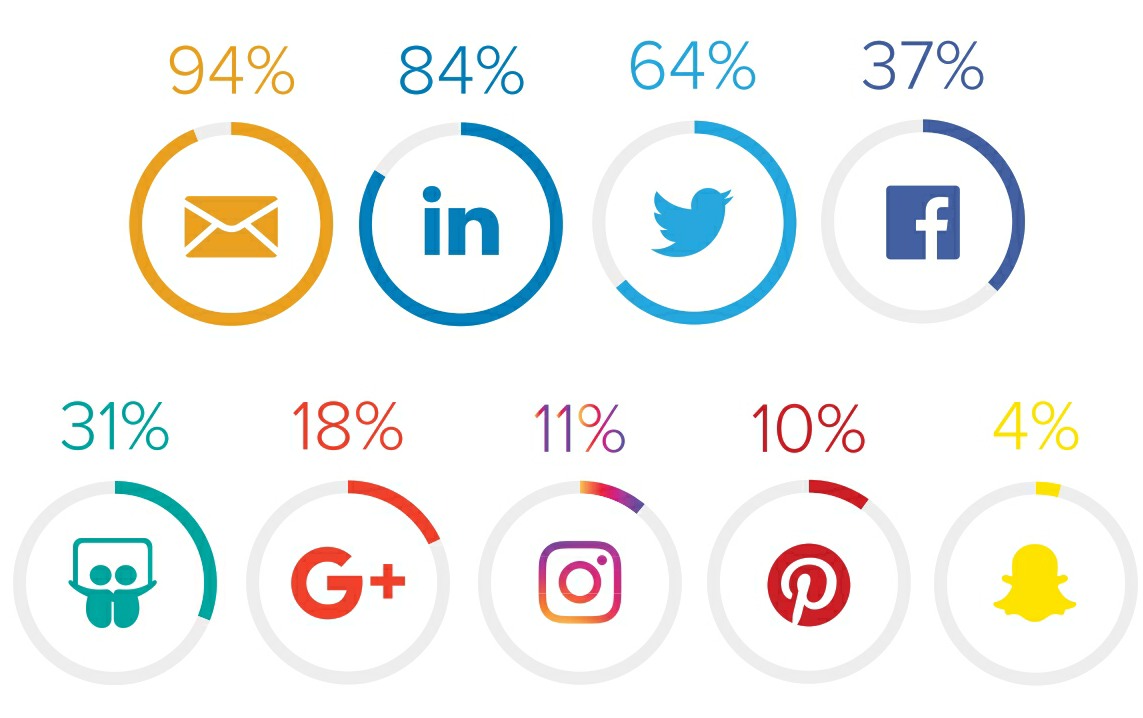How to Grab the Attention of Busy Business People
— April 6, 2017

The people you are trying to contact are busy. They have hundreds of emails to cope with, as well as an increasing burden of social media activity, on top of all the usual meetings and the work they are supposed to do. (April 21, 2017), I heard of a boss of an international organisation who has told his staff in the UK that he expects them to go home from work at the end of the day and then go back online to deal with emails, reports and so on, from 9 pm. Unpaid. Busy, busy, busy.
Your potential customers or clients are overloaded with material. They are stressed, and they are under pressure to stick to static or decreasing budgets. So, anything you can do to help them will be welcomed with wide open arms.
It turns out that half of all business people now rely solely on online content to make purchasing decisions for their company. That’s right – half of the people who buy things on behalf of their business are now so busy they rely just on what they have read online in order to make their purchasing decisions. The value of online content, therefore, cannot be underestimated.
But with so much content available online, how can you make sure those business buyers get to notice what you are producing?
The answer comes in a new study by DemandGen. This found that trust in the content, how it is shared and what it contains are three crucial elements in grabbing the attention of business-to-business buyers.
Trust is vital
The most important factor in determining whether content is of value is whether the source can be trusted. This finding suggests that whatever content you produce, your reputation is fundamental. An array of factors determine trust, but there are two psychological aspects of trust which are the most important. The first of these is to demonstrate that you see everything from the perspective of the audience you are targeting. Content that is self-focused is untrusted. Content that is entirely from the viewpoint of the reader is the most trusted. Your website, indeed everything your business does needs to be done from the perspective of the customer if your firm is to be trusted.
The other essential psychological component of trust is demonstrating knowledge. The more knowledgeable you appear to be, the more trustworthy you become. That means having a website that is crammed full of knowledge is vital in helping your visitors trust you.
This new study shows the immense value of having a knowledgeable website that is written entirely from the perspective of the visitor.
Sharing matters
The DemandGen study also revealed that the way material is shared is significant. If the material your company produces is shared by other, highly-regarded people, then your content is rated more highly. That’s “social proof” coming into play. However, the research found that it is the way this material is shared that matters most. For those in business, the primary method of sharing is email. Yes, that’s right, email. Business-to-business buyers are happiest with content that is shared with them through email. If that isn’t happening, then content on LinkedIn is the next most favoured. Twitter is used by almost two in three business folk, but after that, the other social networks are not deemed valuable by many.
Once again, this is yet another study which emphasises the value of delivering content through email. In spite of the growing amount of email read each day, it continues to be the preferred method for getting business-related content. Indeed, the research discovered that 94% of people were willing to share their email address, whereas only 33% of people were happy to give their phone number. This clearly shows that people want to receive business communication through email, rather than on the phone.
Form of content is crucial
The final aspect of this study is in the appeal of particular kinds of content. What people want is material that shows them practical things they can do. The “7 steps” or the “how to” kind of content is loved by business-to-business people. Furthermore, they want content that is based on case studies. An article on the “7 steps” showing how a particular company achieved things with those seven steps is the kind of content that people want more frequently.
This is understandable from a psychological perspective. That kind of content is about “identity”. A business person wants to identify with someone like themselves and wants to achieve what people like themselves have done. So, seeing how a similar business produced a particular outcome appeals to this self-identity aspect.
The study also found that business people want content that is “solid”. They respect research, data, and factually-based content more than opinion or theory. Back up your content with research data, and it is more likely to appeal to business people than generalised information.
Three steps to grabbing attention
This research suggests you need to do three things to catch the attention of those busy business people.
- Produce much more content than you do at the moment. Content is the number one thing on which business buyers are making decisions. The content needs to come from a trustworthy source, which is a knowledgeable source. So, crank up the content production system and schedule more content.
- Market your content through email and get well-known people in your sector to share it via email as well.
- Research, study, get data. Fill your content with facts, evidence and research information. Demonstrate how these facts fit in with the outcomes generated by specific case studies.
In other words, it’s time to produce more content, on a more frequent basis that is so well-researched and based on real examples that people cannot help emailing it to their friends.
Business & Finance Articles on Business 2 Community
(46)









